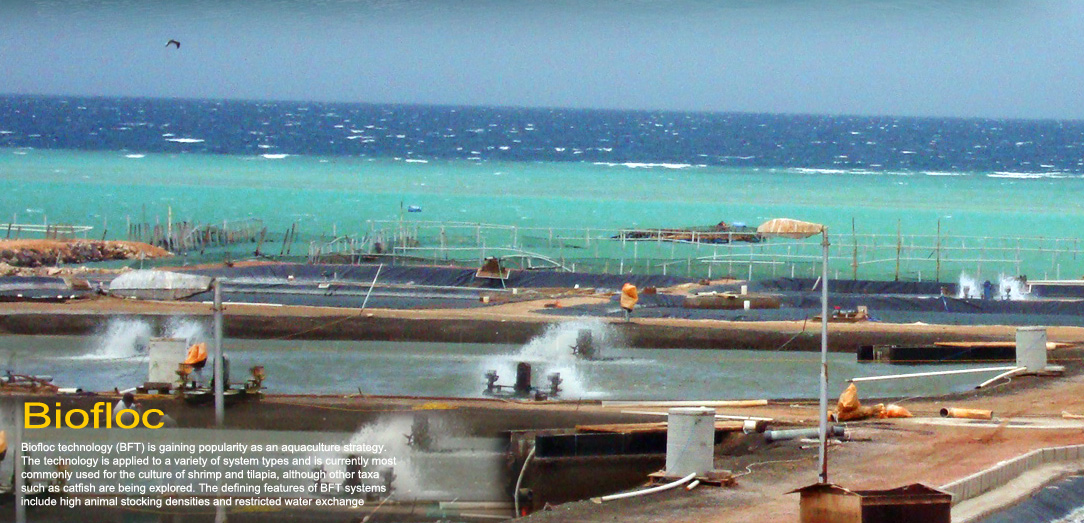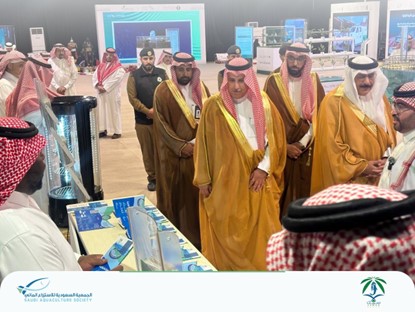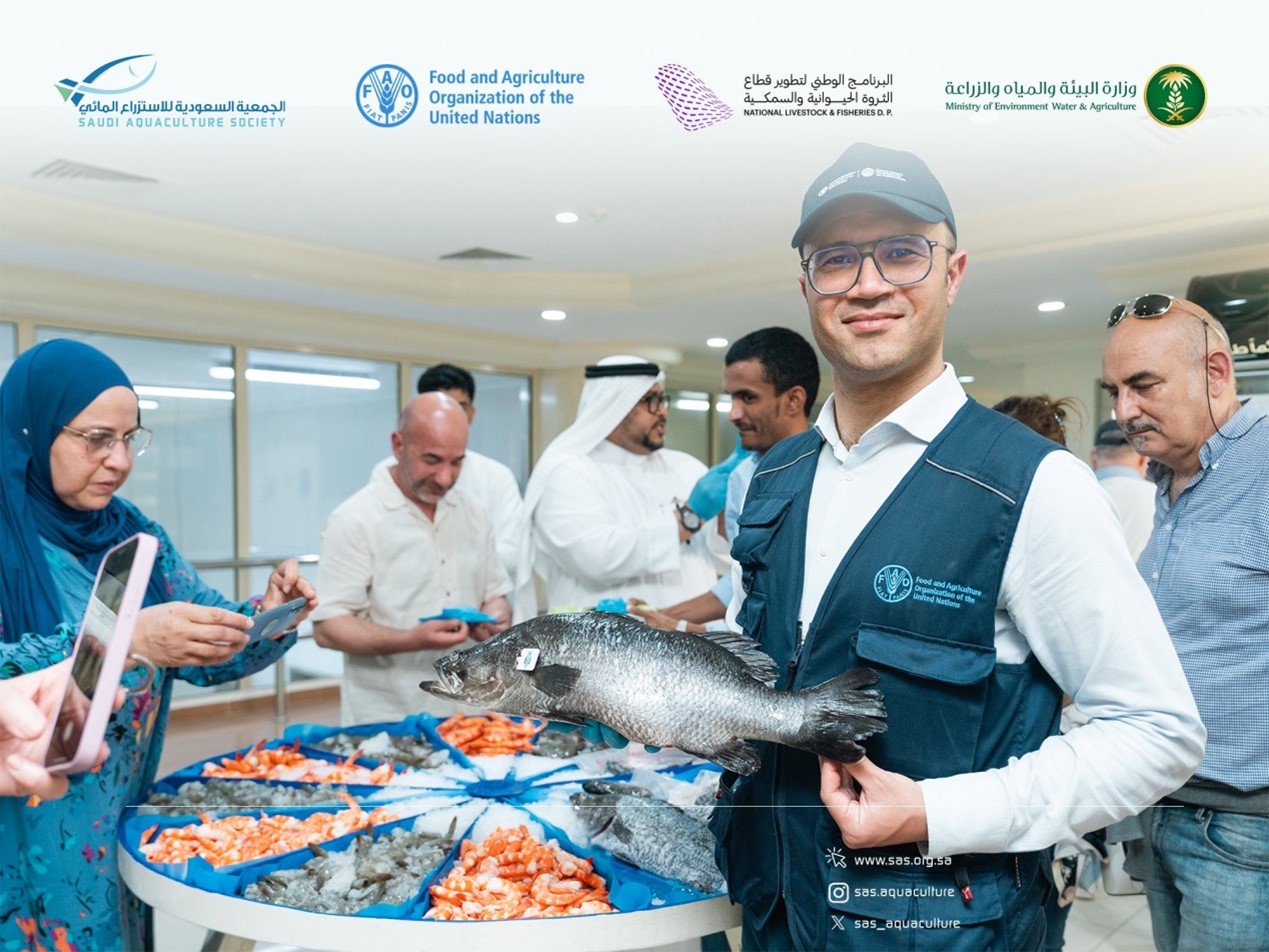
The Saudi Aquaculture Society (SAS) in association with the Ministry of Agriculture (MOA) and the Food and Agriculture Organization of the United Nations (FAO) organized a workshop on the applications of the biofloc technology in the culture of aquatic animals on Sunday, 17/06/1435 H (18/05/2014 G) at the MOA Headquarters in Riyadh, under the auspices of H.E. the Deputy Minister of Fisheries Affairs, engineer Jaber Al Shihri,, H.E. the Chairman of the Saudi Aquaculture Society, engineer/ Ahmed Al Ballaa, and H.E. the Coordinator of the United Nations Technical Cooperation Program in the MOA, Dr. Abdullah Wahbi, and a number of the MOA
Officials. The workshop hosted the Malaysian expert Dr. Nayan Taw, a specialist in biofloc technology with outstanding work in the use of biofloc technology in the culture of L. vannamei in some East Asian countries.
A number of investors and specialists in the aquaculture sector have been invited to attend this workshop which focused on introducing the biofloc technology and its potential application in freshwater and shrimp farms in the Kingdom of Saudi Arabia, due to its many advantages, such as the rationalization of water consumption, which is considered one of the impediments in the freshwater farms, in addition to the complete closure and control of the culture cycle, making it one of the most successful options to deal with the shrimp diseases, especially viruses which pose significant threats to the open shrimp farming systems.
HE the Deputy Minister of Fisheries Affairs, engineer/ Jaber Al Shihri, stated that this workshop comes in preparation of the study which will be conducted by Dr. Nayan Tao for two weeks, to investigate the possibility of applying the “biofloc” system in freshwater and marine water shrimp farms, due to the strategic benefits of the system in preserving the environment, protecting the projects from exposure to epidemic disease, and rationalizing the use of water. In addition, a two-day workshop will be held on 26 and 27 Rajab 1435 AH at Jeddah Fisheries Research Centre in this regard.
Engineer/ Al Shihri also pointed out that the “biofloc” techniques are based on the cultivation of good varieties of bacteria in shrimp and fish farming ponds and treating the water by this bacteria to secure a healthy environment for the cultured organisms, since research and international practices have proved the efficiency of the “biofloc” system in reducing the feeding rate and securing high health of the farms.





.jpeg)